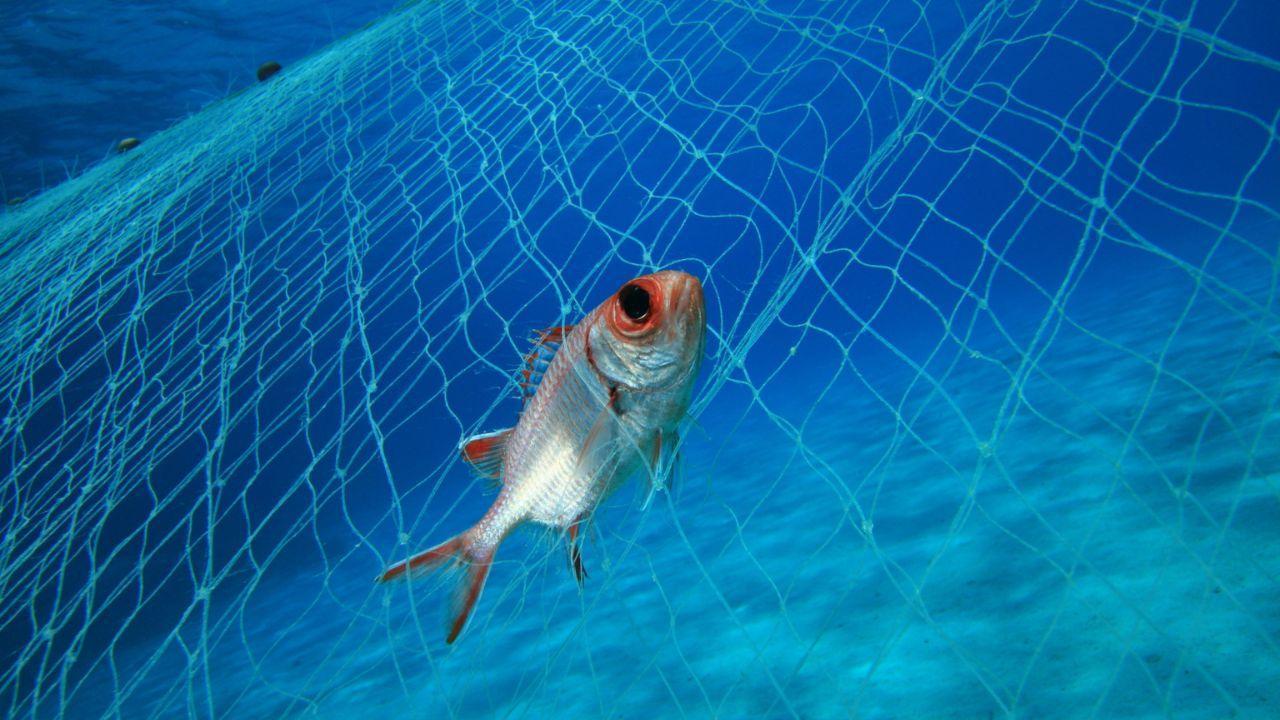
Post by : Zayd Kamal
Fishing has been a vital source of food and livelihood for millions of people around the world. However, some fishing practices have become alarmingly destructive, threatening marine life and the ecosystems they inhabit. In this article, we will explore the deadly fishing methods that destroy the environment, shedding light on their impact and the urgent need for sustainable alternatives.
Before diving into the harmful fishing practices, it’s essential to understand why sustainable fishing matters. Sustainable fishing refers to the practice of harvesting fish in a way that maintains fish populations and ensures the health of marine ecosystems. Overfishing, bycatch, and habitat destruction are significant threats to this balance, leading to the decline of fish stocks and the degradation of ocean habitats.
One of the most destructive fishing methods is bottom trawling. This practice involves dragging heavy nets across the ocean floor to catch fish. While it can yield large catches, it also causes extensive damage to the seabed, destroying vital habitats like coral reefs and seagrass beds.
The sheer weight of the trawl nets crushes everything in their path, resulting in the loss of biodiversity and the destruction of critical breeding grounds for various marine species. Additionally, bottom trawling produces significant bycatch—unintended species caught during fishing—which often includes endangered species.
Dynamite fishing, or blast fishing, is another illegal method that has devastating effects on the environment. Fishermen use explosives to kill fish and make them easier to collect. While this method may seem effective for immediate gains, the consequences are dire.
The explosion not only kills the targeted fish but also causes widespread destruction to the surrounding coral reefs and marine ecosystems. The shockwaves from the blasts can decimate entire populations of fish and other marine organisms, disrupting food chains and leading to long-term ecological damage. Furthermore, the recovery of coral reefs from such destruction can take decades, if not longer.
Cyanide fishing is primarily used in the live fish trade, particularly for reef fish in Southeast Asia. Fishermen spray cyanide into the water to stun fish, making them easier to catch. While this method might seem harmless, it is incredibly toxic to marine ecosystems.
Cyanide not only kills the targeted fish but also damages the surrounding coral reefs and other marine life. The toxic effects can linger in the environment, leading to long-term ecological harm. Moreover, the fish that survive may have compromised health, impacting their ability to reproduce and survive in the wild.

Driftnets are long nets that drift through the water, entangling fish and other marine animals. While driftnets can effectively catch target species, they also capture vast amounts of bycatch, including dolphins, turtles, and seabirds. This indiscriminate catch leads to significant mortality rates among non-target species.
Driftnetting has been banned in many regions due to its destructive nature, but illegal fishing operations still employ this method, further endangering vulnerable species. The entanglement of marine animals not only impacts their populations but also disrupts the delicate balance of the ocean ecosystem.
Overfishing is perhaps the most well-known and widespread fishing issue. It occurs when fish are caught at a rate faster than they can reproduce, leading to population declines. Overfishing affects not only the targeted species but also the entire marine ecosystem, causing a ripple effect that can alter food chains and habitats.
The consequences of overfishing are dire. As certain fish populations dwindle, predators that rely on these species for food may also decline, leading to an imbalance in the ecosystem. Additionally, overfishing can result in the collapse of fisheries, threatening the livelihoods of communities that depend on fishing for sustenance.
The deadly fishing methods that destroy the environment highlight the urgent need for change in how we approach fishing practices. To protect marine ecosystems, it is essential to adopt sustainable fishing methods that prioritize the health of our oceans.
Catch and Release: This practice involves catching fish and returning them to the water unharmed, allowing populations to recover and thrive.
Selective Fishing Gear: Using gear that minimizes bycatch can significantly reduce the impact on non-target species. For example, using circle hooks can decrease the chances of hooking non-target species like turtles and sharks.
Marine Protected Areas (MPAs): Establishing MPAs can help conserve marine ecosystems and provide safe havens for fish populations to recover.
Aquaculture: Sustainable fish farming can reduce the pressure on wild fish populations and provide an alternative source of seafood.
Community-Based Management: Involving local communities in fishery management can lead to more effective and sustainable practices tailored to specific ecosystems.
In this article, we explored the deadly fishing methods that destroy the environment. These methods, like bottom trawling and dynamite fishing, harm ocean life and habitats. Cyanide fishing is another method that poisons the water, while driftnetting catches many unwanted sea creatures. Overfishing is also a big problem, making it hard for fish to grow and reproduce. To help our oceans, we need to switch to sustainable fishing methods that protect marine life. These methods include catch and release, using better fishing gear, and creating marine protected areas. It's important for everyone to know about the deadly fishing methods that destroy the environment so we can all work together to save our oceans.
This article, presented by the DXB News Network, aims to inform readers about the deadly fishing methods that destroy the environment. It encourages everyone to understand the importance of protecting our oceans and marine life. The content is written in simple English for easy understanding by children and young readers. Always consult experts and reliable sources for more information on fishing practices and their impact on the environment.
Deadly fishing methods, environmental destruction, bottom trawling, dynamite fishing, cyanide fishing, driftnetting, overfishing, bycatch, marine ecosystems, sustainable fishing, marine protected areas, catch and release, selective fishing gear, aquaculture, ocean conservation.
#trending #latest #DeadlyFishingMethods #EnvironmentalDestruction #SustainableFishing #OceanConservation #MarineEcosystems #Overfishing #ProtectOurOceans #Aquaculture #Bycatch #BottomTrawling #DynamiteFishing #CyanideFishing #Driftnetting #CatchAndRelease #MarineProtectedAreas #breakingnews #worldnews #headlines #topstories #globalUpdate #dxbnewsnetwork #dxbnews #dxbdnn #dxbnewsnetworkdnn #bestnewschanneldubai #bestnewschannelUAE #bestnewschannelabudhabi #bestnewschannelajman #bestnewschannelofdubai #popularnewschanneldubai










Sheikh Mansour Arrives in Kuwait to Boost UAE-Kuwait Relations
Sheikh Mansour arrives in Kuwait for an official visit to meet the Emir, aiming to strengthen UAE-Ku

Story :The Merchant of Manchester - by Dr Amrinder Pal Singh
Story of loss, Kindness, Betrayal… and Legacy

Rashid Al Obad Appointed Director General of Shams
Sheikh Sultan issues Emiri Decree appointing Rashid Al Obad as Director General of Sharjah Media Cit

Dubai’s Government Best Practices Series 2025 Highlights Innovation
The Government Best Practices Series 2025 in Dubai focused on government innovation, digital service

Dubai Hosts GenAI Masterclass for Future Family Leaders
Dubai Centre for Family Businesses held a GenAI masterclass to train 24 young leaders in using AI fo

ArtDomain by DXB News Network Opens to Strong Global Response — Applications Begin for A50 and The Art Guild.
ArtDomain by DXB News Network Opens to Strong Global Response — Applications Begin for A50 and The A

Dembele's Goal Gives PSG a 1-0 Win Over Arsenal in Semi-final
Ousmane Dembele scores early to give PSG a 1-0 win over Arsenal in their Champions League semi-final